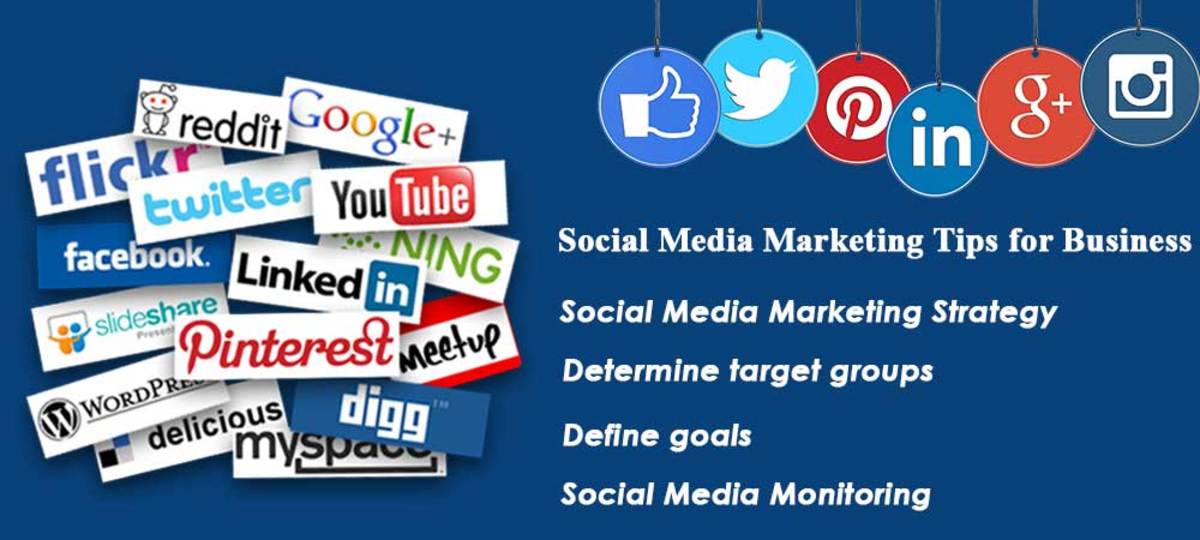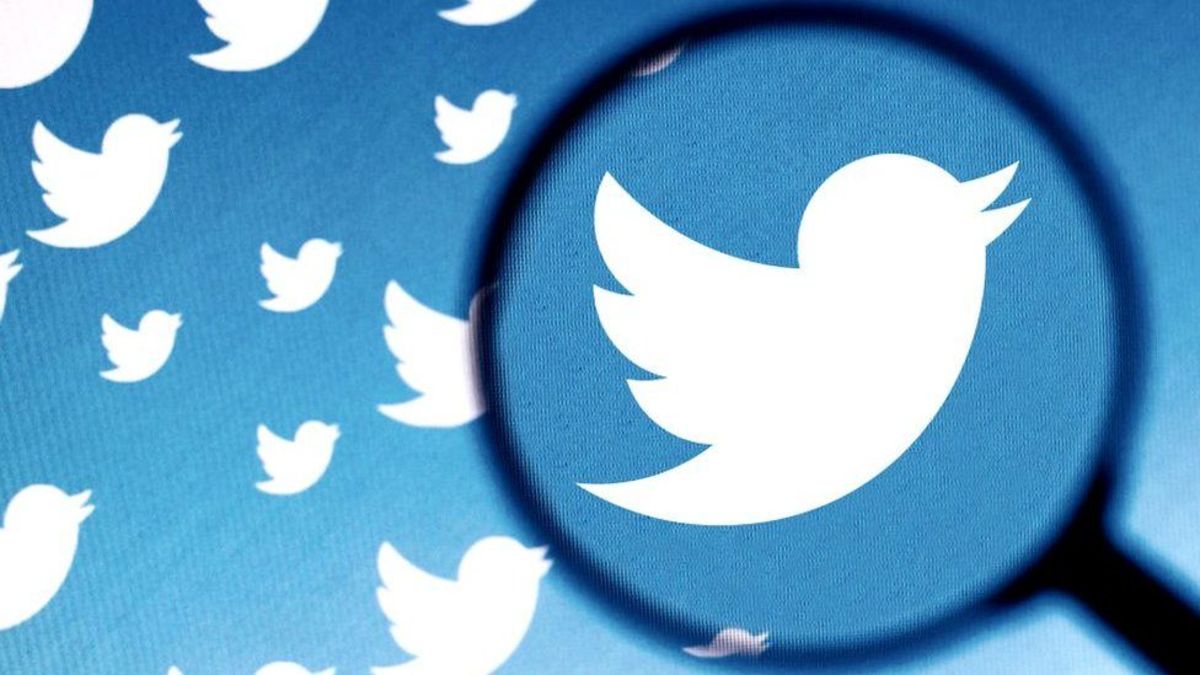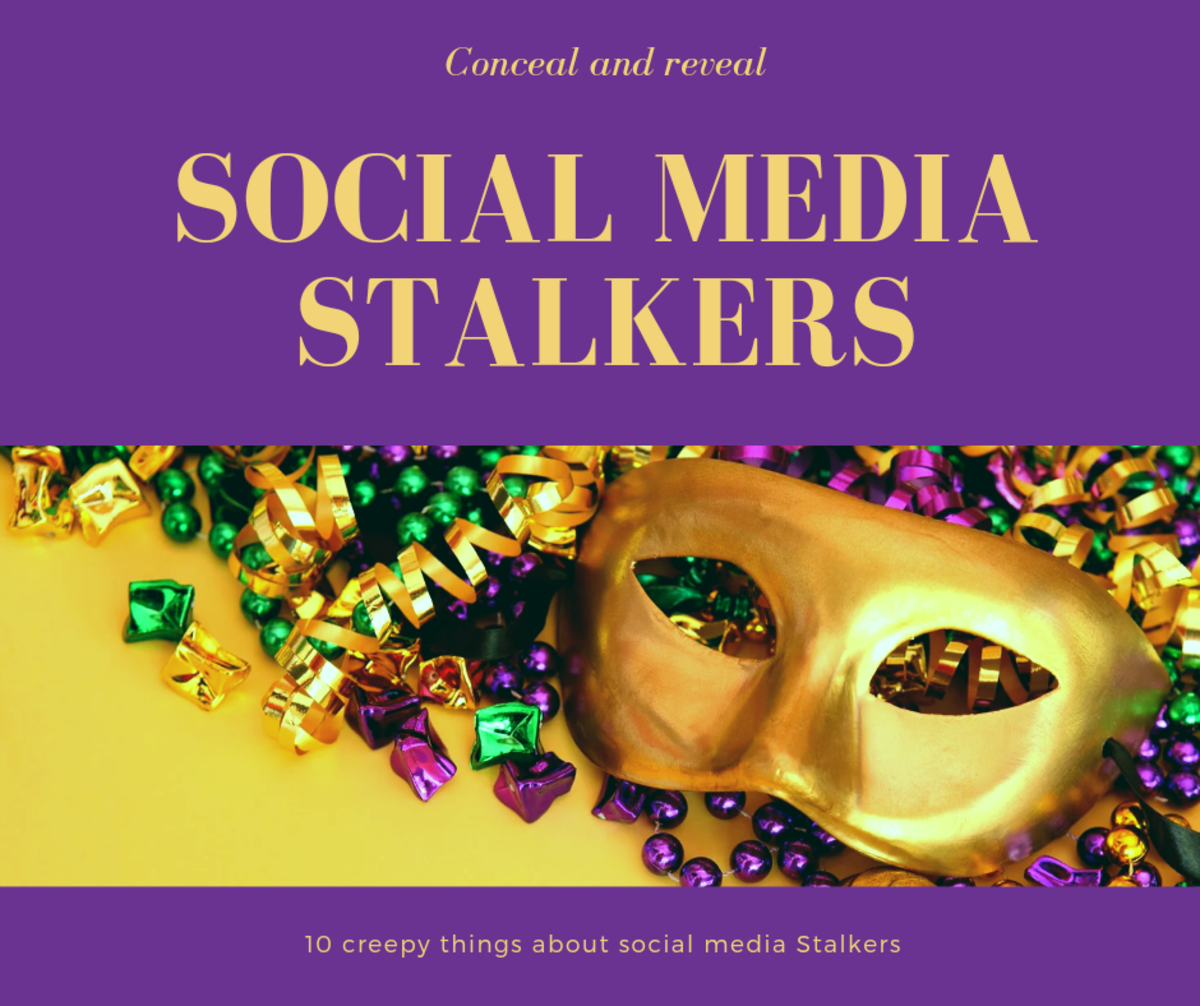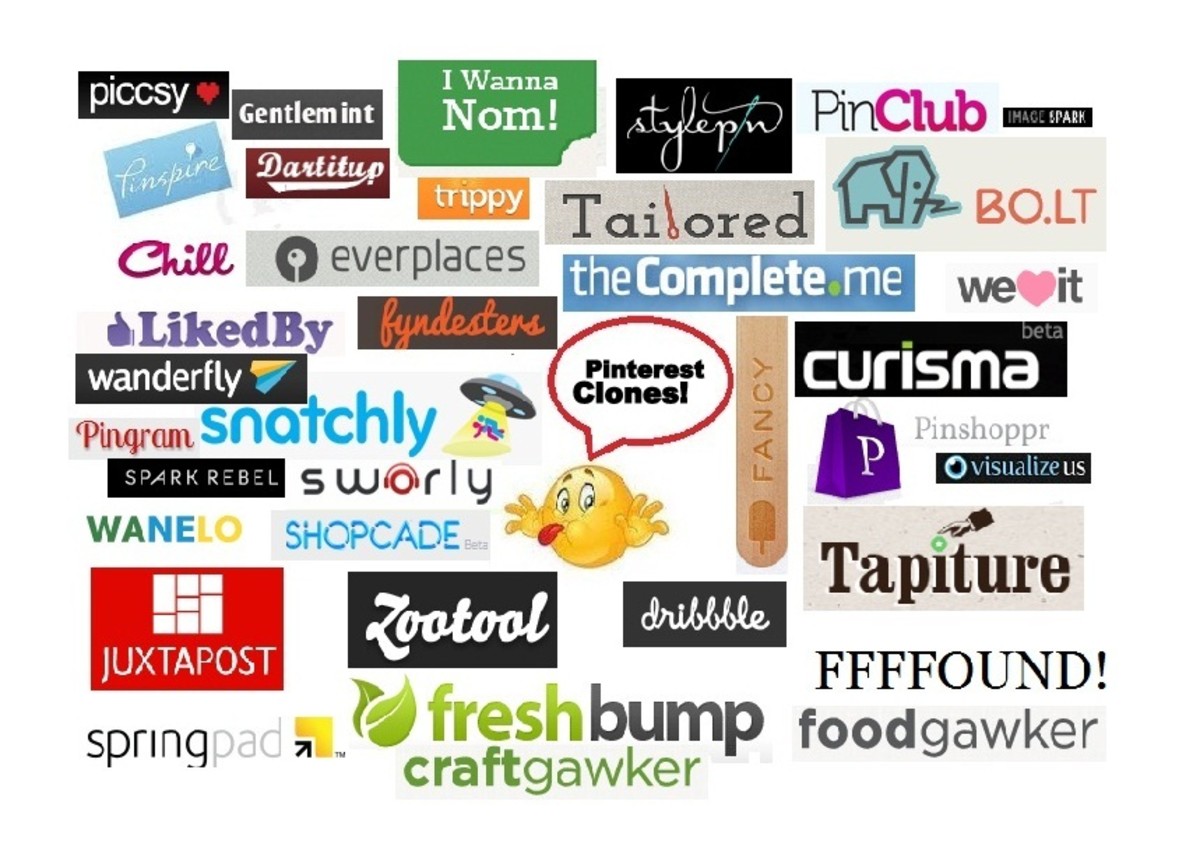- HubPages»
- Business and Employment»
- Marketing & Sales»
- Internet Marketing
What I've Learned About Social Media for Small Business
What do I Know?
After spending years working for marketing firms, I recently gave it up to become a freelance social media manager. Being a manager doesn't make me an expert, more like it makes me a perpetual student, continually learning lessons and applying them to my workflow. The only people who might be able to claim expert status on this topic are the people who work for Facebook, Twitter, Google, or LinkedIn. They are the only people who truly know how their systems work (and it's possible many of them don't know all the secrets).
In my experience, to make social media work for a business, it does require a mix of technical know-how, marketing insights, good customer service, and a sincere love for being on social media. The small business owners I personally know who use social media effectively are already social media junkies. When they're not promoting their businesses on their company pages, they're promoting themselves as the devoted business owner on their personal pages. They have their phones out constantly, taking pictures, sharing pictures, liking comments, replying to comments, etc. These kinds of people keep up with the technical side through experience and the rest of it falls into place.
In my time with the agencies, I met so many owners who did NOT love social media. They knew they needed it, but just didn't like it enough to commit to it themselves. Maybe they'd remember to post here and there, one this week, another the next month. This sporadic posting didn't work for them, and it never will. This is an actual waste of time, while a dedicated social media presence is not. If you want to use social media, it's either all in, or you might as well focus your attention, time, and budgets to other marketing and advertising avenues.
Hiring an agency is an option, but they are expensive. They have overhead costs and employees to pay on top of the budgets they may require for additional advertising costs. You get a lot with an agency you may not get with a freelancer or by designating an employee to manage the accounts. They can provide marketing research, insights, analytics, reporting and a whole slew of billable extras.
But, a freelancer has no overhead. He or she has only themselves to pay, and therefore can be hired at much cheaper rates. If you absolutely do not want to touch your own social media, hire yourself one of these. However, if you're willing to try tackling your own management and you want some honest help, not another teaser blog post written by an advertising firm looking for you to sign up for their e-newsletter so they can hound you into becoming a client, then read on.
Facebook - It's for Everyone
If you're short on time, short on budget, and definitely if you're short on both, then invest it all in Facebook. As of September 2014, 71% of adults are on Facebook. Compare that to 23% on Twitter, 26% on Instagram, 28% on Pinterest and LinkedIn. I give these stats for validation, but the truth is when you work in the industry you don't need them, you just know. Facebook is still the be all and end all of social media networks.
Social Networking Fact Sheet
- Social Networking Fact Sheet | Pew Research Center
Key data points on social networking use from the Pew Research Center's Internet and American Life Project
Facebook - The Strategy
Facebook has everything you need to schedule and manage your activity built in. If this is where you're dedicating your time and money to, there is no need to sign up or pay for a third-party scheduling software. If you are going to cross platforms, I still recommend using Facebook for it's own posts. If you have a need for scheduling to another platform, say to Twitter, then use Hootsuite or Buffer.
I recommend this because, in my experience, Facebook gives you the best preview of what your post will actually look like. Whereas with the third-party systems, some information can be lost and when it actually posts it looks nothing like how you planned.
This is important because social media has become predominantly image-centric. When sharing links, you always want an image in that link preview and you want it to be the best eye-catching image you can get. Remember, you are competing with thousands of other news sources in your follower's feeds. If you want people to actually click your link, you need to grab their attention.
Facebook Post
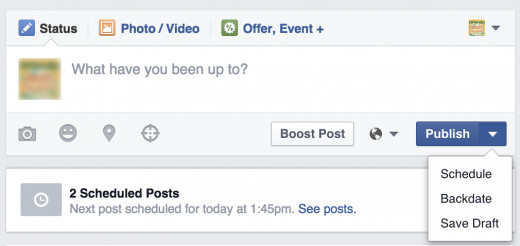
Facebook - Posting
There are a great options when you're composing a Facebook post to help you plan and schedule.
- Drafts - Rather than clicking 'Publish' click the down arrow to pull of those options. If you've written a post you're not ready to publish or schedule, choose to 'Save Draft' and go back to it later.
- Schedule - Click this and schedule your post for any time in the future at least ten minutes out from when you're working on it.
The posts will show in the admin view as either 'Saved Drafts' or 'Scheduled Posts' and can be viewed, edited, rescheduled, or deleted by clicking 'See Posts.'
Facebook Debugger

Facebook - Link Previews
If you're unfamiliar, link previews are those images with the short descriptions that pop up in the post window after you paste a link. These are generated by Facebook reading the code on the webpage and pulling whatever images they find there. Problem is, a lot of websites out there haven't updated to the widely accepted social media tagging system, OpenGraph, which makes it easy for Facebook to find these images. So sometimes you paste that link and all you get is text. This is not what you want.
Truth is, these link previews are far more customizable than people realize. If you get one of these image-less previews, all you need is the Facebook Debugger Tool: https://developers.facebook.com/tools/debug/
Re-paste the link there, click 'Debug,' and for good measure click 'Fetch New Scrape Information' as many times as it takes for the link preview at the bottom of the page to generate an image. If it can't find an actual image, it will eventually pull the website's logo. All you need is something there to start and you can make it look better once you're posting it again.
Scroll down and copy the 'og:url.' This is the URL you will now use to share the content. Paste it into the post on Facebook, and the link preview should now show an image.
Don't like the image it chose? That's ok. When you paste it, Facebook will give you the option to 'Upload Image.' Click this to replace it with something better. If you're not sure what to use, go back to the source and take a screen shot of what you feel is the most engaging imagery on the page.
Twitter - Scheduling, Tweeting, Engaging
Activity on social media is always best done in real-time, or organically. If you're too automated, people will know. That being said, if you're going to be on Twitter and you can't post in "real-time," you will need help. Unlike Facebook, Twitter does not provide a tweet scheduler.
I personally use Hootsuite. Many of my friends rave about Buffer. So, I recommend trying them out and seeing which you prefer. This intent of this post is not to sell you on tools, rather to share how I make my system work for me.
While Hootsuite comes with a built-in link shortener, I prefer to use Bit.ly. In my opinion, using Hootsuite's built-in option immediately notifies your followers you scheduled this tweet. It's free to sign up and even allows you to customize the links: https://bitly.com/
Images are far less important on Twitter. While you can and should use them, optimal hashtag use is far more critical for success. When choosing your hashtags follow these steps:
- Select keywords that are relevant to the topic or main subject of what you're sharing.
- Search for those hashtags on Twitter itself to see how popular they are.
- Keep the "emotional hashtags" to a minimum, but throwing them in there every once and a while is ok. (An emotional hashtag are the #havingsuchawonderfulday types you read, typically on people's personal accounts).
In my own management, I use Hootsuite mainly for scheduling. Since I'm the freelancer who spends her time doing this every day, I still prefer to log in to Twitter directly in order to favorite and reply to tweets and tweet backs. And, while my strategies often include sharing the same content across platforms, where and when I can I like to re-tweet content from followers to increase engagement.
Another Note About Hootsuite
If you're interested in using Hootsuite more than I do, here are some good things to know:
- You can add up to 3 social media accounts to a free account.
- You can post to Facebook, Twitter, LinkedIn, and now Instagram!
- Once a social media profile is linked to a Hootsuite account, it cannot be linked to another. So, if you're looking at having several people collaborate on management you will need to either share the login or upgrade to a Pro account.
- As of right now you cannot Pin to Pinterest from Hootsuite, but you can from Buffer. This is just something to consider when deciding which you will use.
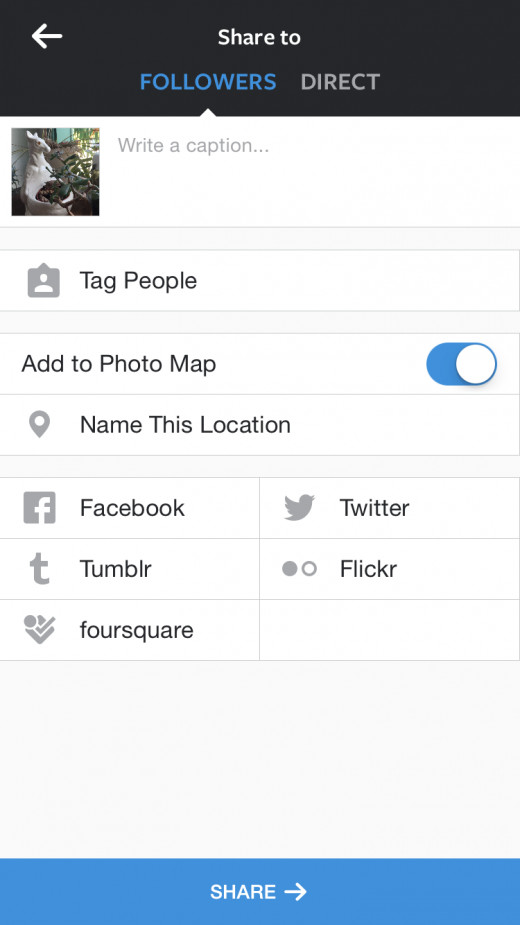
Instagram - Fun and Convenient
I've already mentioned that social media is image-centric, so using Instagram just makes sense. I would recommend, no let me rephrase that, I would insist on Instagram for any client who are goods and service based. If you're a retailer, whether eCommerce or brick-and-mortar, you must use Instagram. If you're a house painter, tile contractor, mobile detailer, or any kind of laborer who makes things pretty, you absolutely have to use Instagram.
Don't limit your pictures to just finished product either. For retailers, show the goods in action. Create hashtags and invite your followers to post pictures and tag you. For service providers, show the process. People love before and afters.
Then, let Instagram help make your life really easy. When you post, share to Facebook, Twitter, Tumblr, Flickr, or Foursquare, and there you go, you've got a great image-based organically shared post down for the day!
Social Media Budgets
What do you think is an acceptable budget for social media, including paying an account/campaign manager?
Pinterest - What to Do
Currently, Pinterest is still a difficult platform to make work for you if you're short on time and budget. There are some business models who can benefit from using it, but others can pass this one up and focus their efforts elsewhere.
Retailers and design related services are some of the businesses that should have Pinterest. For the retailers, it's one more place to showcase your products. For the designers out there, it's another place to have a portfolio in addition to gaining inspiration and a great tool for collaborating with clients by having them pin inspiration for you on a shared board.
Things to keep in mind:
- Pinterest favors the long pins. Horizontal images, the ones most commonly used in blog content, often pin as very small images and will not reach a large audience. It's just a fact of life. Therefore, to make Pinterest really work for you it may require having separate images created for the sole purpose of pinning.
- Utilize Rich Pins. You may need to hire a developer to implement those OpenGraph tags already mentioned, but if Pinterest is a big part of your social media strategy, it is a necessary investment.
- Keep an eye on Buy Pins. With the recent launch of this feature, Pinterest's role in marketing is likely to change drastically as it moves more towards a marketplace than just a place for sharing.
LinkedIn - Do You Really Need This?
LinkedIn started as a networking platform. This is a distinction that should be kept in mind before too much time and money is invested. If selling yourself is a large part of your business, then yes, LinkedIn is very important.
Things to keep in mind:
- LinkedIn is a professional networking site. Keep the content business like. Reserve humor and gossip for Facebook, Twitter, etc.
- Keep your personal profile and company page always up to date.
- Be gracious and congratulatory to others. You're selling yourself here, always behave professionally.
In Conclusion
It is important to note, this is not a how-to guide to social media. When I took on my first clients as a free agent, I had a lot to learn and no one to ask except Google. I struggled a lot in my first months, but eventually I started finding free tools to help make my job easier (like the Facebook Debugger Tool, I'd be lost without it).
I became a freelancer because I grew tired of watching small business owners struggle with their limited budgets. Time and time again they approached the agencies I worked for looking for help only to find out how expensive it would be to contract their services. I want to see these businesses succeed, and for a lot, it will require the employees pitching in and trying to figure out social media on their own. If some of the lessons I've learned along the way can help, I'm happy to share them here.
People who work in social media will all have their own strategies, their own favorite tools, and I'm sure a lot of people will feel I've left something out. The thing is, I'm always learning, always looking for ways to adapt my strategy, and welcome suggestions, tips, and information. If you're going to comment on this post, I ask that it be informative and helpful, either to me or other readers.
Test Your Social Media Knowledge
view quiz statistics© 2015 Rita Barnes

